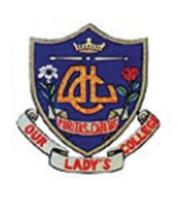| Language Policy |
English is used as the major medium of instruction. <br>For some S1 to S3 students, Chinese is used as the MOI for some of the non-language subjects. <br>(For details, please refer to "Subjects Offered in 2023/24 and 2024/25”.) |
| Learning and Teaching Strategies |
The school provides students with a harmonious and good learning ambience. It offers a broad and balanced curriculum. On top of formal curriculum, activity days are held to promote life-wide learning to broaden students’ horizons. The school promotes a student-oriented teaching mode and adopts diversified strategies. There are enhancement classes for S1 to S3 to raise the learning capacity of high achievers. Homework guidance classes and Chinese, English and Mathematics enrichment classes are run in the junior levels to cater for students' learning needs. For S1-S3, Chinese Language, English Language and Mathematics, S5-S6 Chinese Language and English Language, small group leaning is arranged so as to enhance teaching and learning effectiveness. To foster a proper learning attitude among students, attitude marks are allocated in the assessment component for all subjects. |
| School-based curriculum |
1. Electives: 2X and 3X. (Please refer to the school website: https://www.olc.edu.hk.)<br> 2. Curriculum highlights: A number of school-based curricula such as Language Across Curriculum Programme, STEAM Project-based Learning and Ethics & Religious Education are carried out to promote learning and whole person development of students. |
| Approach to Catering for Learner Diversity |
Academic support measures for students include enhancement classes, small class teaching in Chinese Language, English Language and Mathematics, after-school Chinese, English and Mathematics enrichment classes, homework guidance classes and gifted education. |
| Approach to Integrated Education |
With the Learning Support Grant, our school implements various support measures to cater for the learning needs and growth of students with special educational needs including student counseling services, career and life planning workshops, after-school individual and small group tutorial classes. Our school also encourages teachers to attend the training courses of ‘Special Educational Needs - 3 Tier Model’ to update their knowledge and skills so as to build the foundation for an inclusive campus. |
| Education Support for Non-Chinese Speaking (NCS) Students |
|
| Home-School Co-operation |
The PTA acts as a bridge among parents, teachers and students. It publishes a newsletter named “Bridge” regularly, monitors the quality and operation of the suppliers, and organizes different activities such as tea gathering, talks and outdoor activities to enhance communication between the parents and the school. Our school also keeps close contact with parents by issuing circulars and organizing Parents’ Day regularly. |
| School Ethos |
The school values simplicity and modesty and stresses moral and religious education to help students establish proper values and develop intellectually, morally, spiritually and socially. The school also emphasizes “Family Spirit” – students can grow in an environment of love and care, and build familial bonds through happiness and the spirit of love. |
| School Development Plan |
1. To enhance learning and teaching effectiveness<br>2. To enhance personal development through internalization of school core values |
| Teacher Professional Training and Development |
The school encourages and subsidizes teachers' professional training to keep teachers abreast of the latest development in education. Appraisals, peer observation and collaborative lesson planning are conducted to promote staff development. School-based and subject-based sharing sessions are held regularly. Some teachers are arranged to receive SEN training. |
| Life-wide Learning |
More than 30 extra-curricular activities in 7 categories: religion, academics, interest, arts, sports, social and school services. All S1 students are required to join at least one extra-curricular activity. In addition, learning activities such as visits, cultural study tours and workshops are organized on the activity days, after school and during post-exam periods. Study tours are held during school holidays for broadening students' horizons. |
